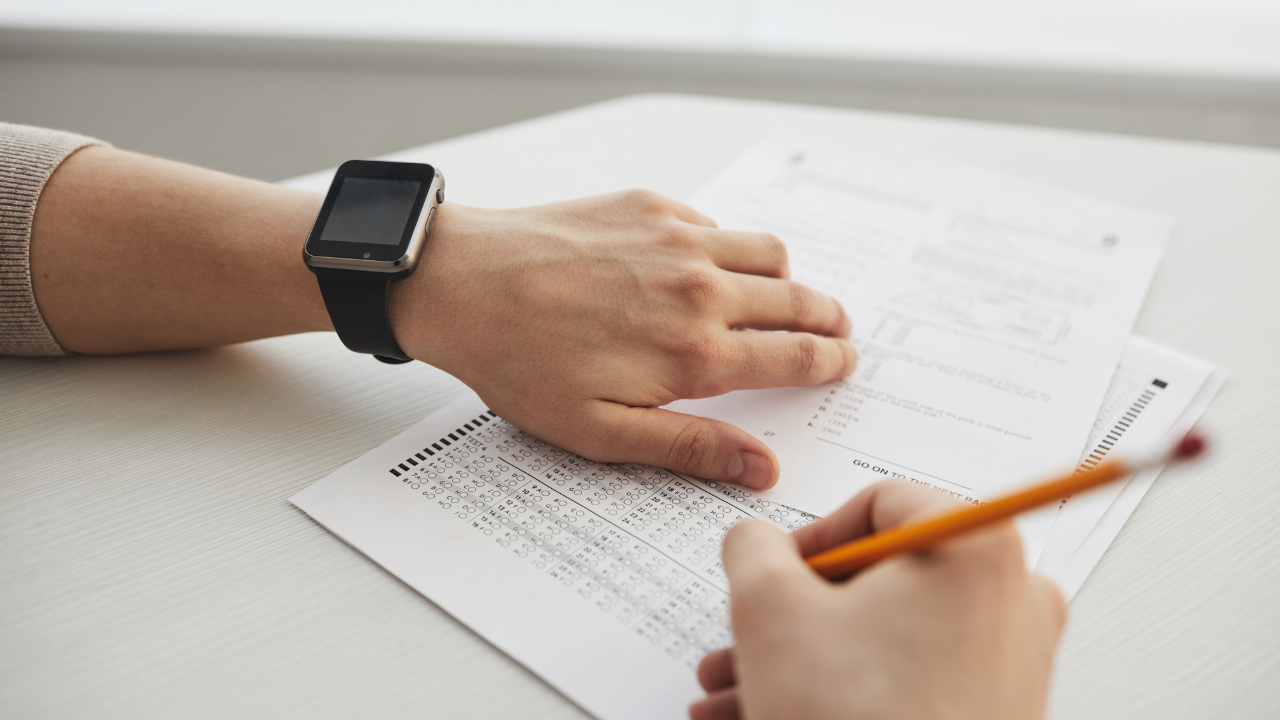Exams are a very stressful period for most students, and it is always accompanied by anxiety due to the pressure of performing well. Stress and anxiety management during exams are essential to mental health and success in exams. Below are several strategies of how to manage exam stress to help in reducing stress and anxiety before, during, and after your exams.
1. Prepare Well in Advance
Being well prepared is one of the best ways to get stress relief during exams. Procrastination usually results in last-minute cramming, which increases anxiety. It's always a good idea to start studying well ahead of time and break up the material into digestible chunks. A study schedule can help one systematically allocate time for each subject, reducing the workload to something much more manageable. Good habits in studying will help you feel much more in control and confident and, therefore, reduce anxiety concerning exams.
2. Mindfulness and Deep Breathing Exercise
Mindfulness and deep breathing are considered to be excellent tools Stress relief during exams. The moment you experience anxiety, simply stop for a moment and bring your focus toward your breath. Try to inhale for four counts, retain for four counts, and then exhale for four counts. As it may be quite simple, it would stimulate your body's relaxation response; therefore, it is indeed very efficient in reducing your anxiety very quickly. Another practice of mindfulness, being present, can also disengage from stressful thoughts. The more one engages in these practices, the more resilient one becomes to stress.
3. Exercise Regularly
Exercise is a very good stress-reducing activity that also helps clear the mind and
manage exam stress. Exercise will release endorphins, which are natural mood elevators, and decrease cortisol, the stress hormone. A short walk, jog, or quick yoga session can refresh your mind and relieve anxiety. Regular exercise will keep you energized and reduce the negative effects of stress, which makes it easier to focus on your studies. Try to include a workout in your routine, especially during exam periods.
4. Get Enough Sleep
Adequate sleep is crucial for mental and physical health, particularly during exams. Lack of sleep worsens anxiety, impairs memory, and reduces cognitive performance. Although staying up late to study might seem tempting, sleep deprivation can hinder your ability to retain information and perform well on exams. Aim for 7-9 hours of sleep each night to help your brain recharge. A well-rested mind will be more focused, and you’ll feel more energized and less anxious.
5. Eat Right and Hydrate
Diet can be one of the most significant factors in mood and stress levels. For exams, try to have a balanced diet of fruits, vegetables, whole grains, and lean proteins. These food items nourish the brain and provide much-needed energy for the body. Avoid excessive use of caffeine and sugary snacks, which often lead to an energy crash, increasing anxiety levels. Hydrate well because dehydration may affect concentration and increase stress levels. Drink water during the day so that your brain and body stay at their optimal level.
6. Take breaks and take care of yourself
Without giving yourself time for rest, extended study hours cause increased stress leading to burnout. Regular study sessions should involve breaks. Studying for 25 minutes can be followed with a 5-minute break that keeps your brain from getting drowsy using the Pomodoro Technique. Take time off during your breaks, stretching, and walking around while relaxing. Remember, self-care like listening to music or other loved ones means keeping a proper balance.
7. Reframe Negative Thoughts
It mostly happens due to a negative thought process, like fearing failure or losing confidence in doing something. The best way to deal with stress is to practice reframing your thoughts. Rather than thinking of what might go wrong, you should think about what you have done to prepare. You need to remind yourself that you can do it, and you've worked hard. Positive thinking will reduce anxiety and increase confidence in facing the exams.
8. Seek Help
No one has to fight alone in exams. Sometimes, speaking to someone—a friend, a family member, or a counselor—keeps you calm and brings a different sense of reality. They usually understand you much better, especially when they make you feel less lonely. You can say how you feel, talk about your anxiety by saying it out loud, and start thinking straighter.
Conclusion
An exam can produce stress in many students' lives, and there are strategic means to work this out properly with the avoidance of anxiety, leading you to make excellent scores during an exam. It is necessary to exercise regularly. Practice mindfulness along with good sleeping hours and nutritional intake, as well as observing rest periods according to your choice for maintaining not just your thinking skills but even keeping your bodies refreshed. Over time, control stress and be fit to avoid damage to both mind and brain.

















Leave a comment